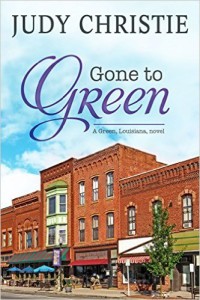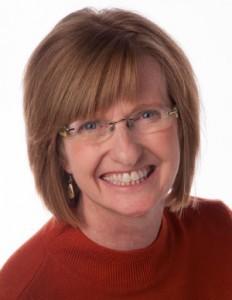 It is time for a FIRST Wild Card Tour book review! If you wish to join the FIRST blog alliance, just click the button. We are a group of reviewers who tour Christian books. A Wild Card post includes a brief bio of the author and a full chapter from each book toured. The reason it is called a FIRST Wild Card Tour is that you never know if the book will be fiction, non~fiction, for young, or for old…or for somewhere in between! Enjoy your free peek into the book!
It is time for a FIRST Wild Card Tour book review! If you wish to join the FIRST blog alliance, just click the button. We are a group of reviewers who tour Christian books. A Wild Card post includes a brief bio of the author and a full chapter from each book toured. The reason it is called a FIRST Wild Card Tour is that you never know if the book will be fiction, non~fiction, for young, or for old…or for somewhere in between! Enjoy your free peek into the book!
You never know when I might play a wild card on you!
Today’s Wild Card author is:
and the book:
Catching Moondrops
Tyndale House Publishers, Inc. (September 20, 2010)
***Special thanks to Maggie Rowe of Tyndale House Publishers, Inc. for sending me a review copy.***
ABOUT THE AUTHOR:
 Jennifer Erin Valent is the 2007 winner of the Christian Writers Guild’s Operation First Novel contest. A lifelong resident of the South, her surroundings help to color the scenes and characters she writes. In fact, the childhood memory of a dilapidated Ku Klux Klan billboard inspired her portrayal of Depression-era racial prejudice in Fireflies in December. She has spent the past 15 years working as a nanny and has dabbled in freelance, writing articles for various Christian women’s magazines. She still resides in her hometown of Richmond, Virginia.
Jennifer Erin Valent is the 2007 winner of the Christian Writers Guild’s Operation First Novel contest. A lifelong resident of the South, her surroundings help to color the scenes and characters she writes. In fact, the childhood memory of a dilapidated Ku Klux Klan billboard inspired her portrayal of Depression-era racial prejudice in Fireflies in December. She has spent the past 15 years working as a nanny and has dabbled in freelance, writing articles for various Christian women’s magazines. She still resides in her hometown of Richmond, Virginia.
Visit the author’s website.
Product Details:
List Price: $12.99
Paperback: 384 pages
Publisher: Tyndale House Publishers, Inc. (September 20, 2010)
Language: English
ISBN-10: 1414333277
ISBN-13: 978-1414333274
ISLAND BREEZES
This is another book I just didn’t want to lay down before I’d finished reading it. It certainly plays havoc with emotions – the entire range of them.
I kept waiting for the other shoe to drop. I just knew that girl was going to get hurt. I really didn’t want to see her die.
This book is the third in a trilogy. The first was Fireflies in December. The second, Cottonwood Whisper, I didn’t have a chance to read. It would have been good to see what intervened during those years, but not necessary as this boo0k is a good stand alone read.
You’d better read this book. Just saying. It’s good. Don’t forget that box of tissues, either.
AND NOW…THE FIRST CHAPTER:

There’s nothing in this whole world like the sight of a man swinging by his neck.
Folks in my parts liked to call it “lynching,” as if by calling it another word they could keep from feeling like murderers. Sometimes when they string a man up, they gather around like vultures looking for the next meal, staring at the cockeyed neck, the sagging limbs, their lips turning up at the corners when they should be turning down. For some people, time has a way of blurring the good and the bad, spitting out that thing called conscience and replacing it with a twisted sort of logic that makes right out of wrong.
Our small town of Calloway, Virginia, had that sort of logic in spades, and after the trouble it had caused my family over the years, I knew that better than most. But the violence had long since faded away, and my best friend Gemma would often tell me that made it okay—her being kept separate from white folks. “Long as my bein’ with your family don’t bring danger down on your heads, I’ll keep my peace and be thankful,” she’d say.
But I didn’t feel so calm about it all as Gemma did. Part of that was my stubborn temperament, but most of it was my intuition. I’d been eyeball to eyeball with pure hate more than once in my eighteen years, and I could smell it, like rotting flesh. Hate is a type of blindness that divides a man from his good sense. I’d seen it in the eyes of a Klansman the day he tried to choke the life out of me and in the eyes of the men who hunted down a dear friend who’d been wrongly accused of murder.
And, at times, I’d caught glimpses of it in my own heart.
The passage of time had done nothing to lessen its stench. And despite the relative peace, I knew full well that hearts poisoned by hateful thinking can only simmer for so long before boiling over.
In May of that year, 1938, that pot started bubbling.
I was on the front porch shucking corn when I saw three colored men turn up our walk, all linked up in a row like the Three Musketeers. I stood up, let the corn silk slip from my apron, and called over my shoulder. “Gemma! Come on out here.”
She must have been nearby because the screen door squealed open almost two seconds after my last words drifted in through the screen. “What is it?”
“Company. Only don’t look too good.” I walked to the top of the steps and shielded my eyes from the sun. “Malachi Jarvis! You got yourself into trouble again?”
The man in the middle, propped up like a scarecrow, lifted his chin wearily but managed to flash a smile that revealed bloodied teeth. “Depends on how you define trouble.”
Gemma gasped at the sight of him and flew down the steps, letting the door slam so loud the porch boards shook. “What in the name of all goodness have you been up to? You got some sort of death wish?”
A man I’d never seen before had his arm wound tightly beneath Malachi’s arms, blood smeared across his shirt front. Malachi’s younger brother, Noah, was on his other side, struggling against the weight, and Gemma came in between them to help.
“He ain’t got the good sense to keep his mouth shut, is all,” Noah said breathlessly.
I went inside to grab Momma’s first aid box, and by the time I got back out, Gemma had Malachi seated in the rocker.
Gemma gave him the once-over and shook her head so hard I thought it might fly off. “I swear, if you ain’t a one to push a body into an early grave. Your poor momma’s gonna lose her ever-lovin’ mind.”
Along with his younger brother and sister, Malachi lived down by the tracks with his widowed momma—as the man of the house, so to speak. He’d taken up being friends with Luke Talley some two years back when they’d both worked for the tobacco plant, and they’d remained close even though Luke had struck out on his own building furniture. Malachi was never one to keep his peace, a fact Gemma had no patience for, and she made it good and clear many a time. Today would be no exception.
“Goin’ around stirrin’ up trouble every which way,” she murmured as she pulled fixings out of the first aid box. “It’s one thing to pick fights with your own kind. Can’t say as though you wouldn’t benefit by a poundin’ or two every now and again. But this foolin’ around with white folks’ll get you into more’n you’re bargainin’ for.”
The man who’d helped Noah shoulder the burden of Malachi reached out to take the gauze from Gemma. “Why don’t you let me get that?”
Gemma didn’t much like being told what to do, and she glared at him. “I can clean up cuts and scrapes. I worked for a doctor past two years.”
Malachi nodded towards the man. “This here man is a doctor.”
I was putting iodine on a piece of cotton, and I near about dropped it on the floor when I heard that. Never in all my born days had I seen a colored man claiming to be a doctor. Neither had Gemma by the looks of her.
“A doctor?” she murmured. “You sure?”
He laughed and extended his hand to her. “Last I checked. Tal Pritchett. Just got into town yesterday. Gonna set up shop down by the tracks.”
Gemma handed the gauze over to him, still dumbfounded.
“What d’you think about that?” Malachi grinned and then grimaced the minute his split lip made its presence known. “A colored doc in Calloway. Shoo-whee. There’s gonna be talkin’ about this!”
The doctor went to work cleaning up Malachi’s wounds. “I ain’t here to start no revolution. I’m just aimin’ to help the colored folks get the help they deserve.”
“Well, you’re goin’ to start a revolution whether you want to or not.” Malachi shut his eyes and gritted his teeth the minute the iodine set to burning. “Folks in these parts don’t much like colored folk settin’ themselves up as smart or nothin’.”
Gemma watched Tal Pritchett like she was analyzing his every move, finding out for herself if he was a doctor or not. I stood by and let her assist him as she’d been accustomed to doing for Doc Mabley until he passed on two months ago. After he’d bandaged up Malachi’s right hand, she seemed satisfied that he was who he said.
Noah slumped down into the other rocker and watched. “It’s one thing to get yourself an education and stand for your right to make somethin’ of yourself. It’s another to go stirrin’ up trouble for the sake of stirrin’ up trouble.”
“I ain’t doin’ it for the sake of stirrin’ up trouble. I done told you that!” Malachi flexed his left hand to test how well his swollen fingers moved. Ain’t no colored man ever goin’ to be free in this here county . . . in this here state . . . in this here world unless somebody starts fightin’ for freedom.”
“Slaves was freed decades ago,” Noah said sharply. “We ain’t in shackles no more.”
“But we ain’t free to live our lives as we choose, neither. You think colored people are ever gonna be more’n house help and field help so long as we let ourselves be treated like less than white people? No sir. We’re less than human to them white folks. They don’t think nothin’ about killin’ so long as who they’re killin’ is colored.”
“Don’t you go bunchin’ all white people together, Malachi Jarvis,” I argued. “Ain’t all white folk got bad feelin’s about coloreds.”
Malachi waved me off in exasperation. “You know I ain’t talkin’ about you, Jessilyn.”
Noah had his hands tightly knotted in his lap and was staring at them like they held all the answers to the world’s problems. “All’s you’re doin’ is gettin’ yourself kicked around.” He looked up at me pleadingly. “This here’s the second time in a week he’s come home banged up.”
I put a hand on Noah’s shoulder and set my eyes on Malachi. “Who did it?”
He put his bandaged right hand into the air, palm up. “Who knows? Some white boys. You get surrounded by enough of ‘em, they all just blend in together like a vanilla milkshake.”
“How’s it you didn’t see them? They jump you or somethin’?”
“Don’t ask me, Jessie. I was just mindin’ my own business in town and then on my way home, they start hasslin’ me.”
“What he was doin’,” Noah corrected, “was tryin’ to get into the whites-only bar.”
Gemma sniffed in disgust. “Shouldn’t have been in no bar in the first place. There’s your first mistake.”
“Whites-only, too.” Noah kicked his foot against the porch rail and then looked up at me quickly. “Sorry.”
I smiled at him and turned my attention back to Malachi. “It’s a good thing Luke ain’t here to see this. He don’t like you drinkin’ and you know it.”
His eyeballs rolled between swollen lids. “I don’t know why he gets his trousers in a knot over it anyhow. Ain’t like there’s prohibition no more. And he’s been known to take a swig or two himself.”
“Luke says you’re a nasty drunk.”
“He is.” Noah knotted his hands back in his lap. “And he’s been at the bottle more often than not of late.”
“Quit tellin’ tales!” his brother barked.
“I ain’t tellin’ tales; I’m tellin’ truth. They can ask anybody at home how late you come in, and how you come in all topsy turvy. He comes home in the middle of the mornin’ and sleeps in till all hours the next day.”
“What about your job at the plant?” Gemma asked.
Malachi closed his eyes and waved her off, but his brother provided the answer for him. “Lost it!” He loosened his grip on his hands and snapped his fingers. “Like that. There’s goes his income.”
“I said I’ll get another job.”
“Oh, like there’s jobs aplenty around these parts for colored folk. And anyways, if you find one, how you gonna’ keep that one?”
Gemma had her hands on her hips, and I knew what that meant. I leaned back against the house and waited for the lecture to commence.
“You talk a fine talk about colored folks needin’ to stand up for equality, but you ain’t doin’ it in any way that’s right and good. You’re goin’ about town gettin’ people’s goat, and tryin’ to get in where you ain’t wanted, and gettin’ yourself all liquored up and useless. Now your family ain’t got the money they depend on you for, and why? Because you walk around livin’ like you ain’t got to do nothin’ for nobody but yourself.”
“I’m standin’ up for the rights of colored folks everywhere.” Malachi was angry now, pink patches spreading on his busted-up cheeks. “You see anyone else in this town willin’ to go toe to toe with the white boys in this county?”
“Don’t put a noble face on bein’ an upstart.”
Malachi pushed Tal’s hand away and sat up tall. “You call standin’ up to white folks bein’ an upstart?”
Doc Pritchett tried to dress the wound on Malachi’s temple, but Malachi pushed his hand away again. That was when the doctor had enough, and he smacked his hands on his thighs and stood up tall and determined in front of Malachi. “I ain’t Abraham Lincoln. I’m just Doc Pritchett tryin’ to fix up an ornery patient, and I ain’t got all day to do it. So I’m goin’ to settle this argument once and for all.” He pointed at Gemma. “She’s right. There ain’t no fightin’ nonsense with more nonsense, and all’s you’re doin’ by gettin’ in the faces of white folks with your smart attitude is bein’ as bad as they’re bein’.” Then he pointed at Malachi. “And he’s right, too. There ain’t never a change brought about that should be brought about without people standin’ up for such change. And sometimes that means bein’ willin’ to fight for what’s right.”
Gemma swallowed hard and didn’t even try to argue. My eyes must have bugged out of my head at the sight of her being tamed so easily.
“Now, I’m all for civil uprisin’,” Tal continued. “I don’t see nothin’ wrong with colored folk sayin’ they won’t be walked on no more. I don’t see nothin’ wrong with wantin’ to use the same bathroom as white folks or sit in the same chairs as white folks. Way I see it, none of that’s goin’ to change unless someone says it has to.” He squatted down in front of Malachi again and stared him down nose to nose. “But all this hot-shottin’ and show-boatin’ ain’t goin’ to do nothin’ but get your rear end kicked. Or worse. You aim to stand tall for somethin’? Fine. Stand tall for it. But don’t you go around thinkin’ these battle scars say somethin’ for you. You ain’t got them by bein’ noble; you got them by bein’ stupid. All’s these scars say is you’re an idiot.”
It was one of the best speeches I’d heard from anyone outside my daddy, and if I’d ever thought for two seconds put together to see a colored man run for governor, I figured Tal Pritchett would be the man for the job. As it was, I knew he was the best man for the job he had now. Sure enough, being a colored doc in Calloway would be a challenge. But I figured he was up for it.
Regardless, he shut Malachi up, and for the next five minutes we all watched him finish his job with skill and finesse. When he’d fixed the last of Malachi’s face, he stood up and clapped his hands. “Suppose that should do it. Don’t see need for any stitchin’ up today. Let’s hope there’s no cause for it in future.” Then he looked at me. “You got someplace out here where I can wash up?”
I held my hand out toward the front door. “Bathroom’s upstairs.”
He hesitated. “I’d just as soon wash up out here.”
I caught the reason for his hesitation but didn’t know what to say. As usual, Gemma did.
“I done lived in this here house for six years now, and I’m just as brown as you. You can feel free to go on up to the bathroom, you hear?”
He looked from Gemma to me, then back to Gemma before nodding. “Yes’m.” And then he disappeared inside.
“Ma’am,” Gemma muttered under her breath. “Ain’t old enough to be called ma’am, least of all by a man no more’n a few years older’n me.”
“You know what happens once you start gettin’ them crows feet . . .”
Gemma whirled about and gave Malachi the evil eye. “Don’t go thinkin’ I won’t hurt you just because you’re all bandaged up.”
Noah got up and paced the porch until Tal came back outside. “Doc, you have any problem gettin’ your schoolin’?”
Tal shrugged and leaned against the porch rail. “No more’n most, I guess. There’s a lot to learn. Why? You thinkin’ about goin’ to college?”
You could have heard a pin drop on that front porch. Never, and I mean never, in all the days Calloway had been on the map, had there ever been a single person, white or black, to step foot at a college. The very idea of that mark being made by a colored boy was a surefire way to start war.
And Noah knew it.
He looked at his feet and kicked the heel of one shoe against the toe of another. “Ain’t possible. I was just wonderin’ aloud, is all.”
“What do you mean it ain’t possible? All’s you’ve got to do is work hard. You can get scholarships and things.”
But Noah took a look at his brother, whose face was hard and tight-lipped, and nodded off toward the road. “Nah, there ain’t no use talkin’ over it. We’d best get home anyhow.”
Tal didn’t push the subject. He just picked his hat up off the porch swing and plopped it on his head. “Miss Jessie. Miss Gemma. It was a fine pleasure to meet you, and a kindness for you to give us a hand.”
“You should stop by sometime and meet my parents,” I said. “They’re off visitin’, but I’m sure they’d be right happy to know you.”
“I’m sure I’d be right happy to know them, too.” He turned his attention to Gemma. “You said you worked for a doctor?”
“I worked for Doc Mabley. He was a white doctor. Died some two months ago.”
“He let you assist?”
“Only with the colored patients. Doc Mabley was kind enough to help some of them out when they needed it. Otherwise I kept his records, kept up his stock.”
“Well, I’ll tell you, Miss Gemma, I could sure use some help if you’d be obliged. An assistant would be a good set of extra hands, and I could use someone known around here to make my introductions.”
Gemma eyed him up before slowly nodding her head. “Reckon I could.”
“Wouldn’t be much pay, now, you know. Ain’t likely to get much in the way of fees from the patients I’ll be treatin’.”
“Don’t matter so long as I have good work to put my hands to.”
“That it would be. My office is right across the street from the Jarvis house.”
Malachi snorted. “Shack’s more like it.”
“Room enough for me,” Tal said. Then to Gemma, “You think you could stop in sometime this week to talk it over?”
“I can come day after tomorrow if that suits.”
“Nine o’clock too early?”
“No, sir! I’ve kept farm hours all my life.”
He grinned at her. “Nine o’clock then?”
“Nine o’clock.”
Malachi watched the two of them with his swollen eyes, a look of disgust growing more evident on his face. He’d made no secret over the past year about his admiration for Gemma, and the unmistakable attraction that was growing between her and Tal was clearly turning his stomach.
“Mind if we go home?” he muttered. “Before I fall down dead or somethin’?”
Gemma tore her eyes away from Tal to roll them at Malachi. “Would serve you right if you did.”
“And on that cheery note . . .” Malachi groaned on his way down the steps. “I’ll bid you ladies a fine evenin’.”
I gave Noah a playful whack to the head, but he ducked so it only clipped the top. “Luke will be back home tomorrow evenin’. He’ll be itchin’ to see you, I’m sure.”
“I’m itchin’ to see him.” He took the steps in one leap, tossing dust up when he landed. “You tell him to come on by and see us real soon.”
“And tell him to bring his cards,” Malachi added. “He owes me a poker rematch.”
I squinted at him suspiciously. “Only if you play for beans.”
“I hate beans.”
Malachi leaned on Tal for support and Noah scurried to catch up and help. I watched them go, but I wasn’t thinking much about them. I was thinking about Luke. It had been two months since he’d left to collect customers for his furniture-making business, and every day had seemed like an eternity.
The very thought of him got my stomach butterflies to fluttering, but one look at Gemma told me it was another man who had stolen her attention. “That
Doc Pritchett’s a fine man.” I looked at her sideways with a smirk. “Looks about twenty-five or so.”
“So?”
“Good marryin’ age.”
She crossed her arms defiantly. “Jessilyn Lassiter, what’s that got to do with anythin’?”
“Only what I said. I’m only statin’ fact.”
“Mm-hm. I hear ya. You’d be better off keepin’ your facts to yourself.”
She grabbed the first aid box and headed inside, but the sound of that door slamming told me I’d got to her.
It told me Tal Pritchett had got to her, too.














